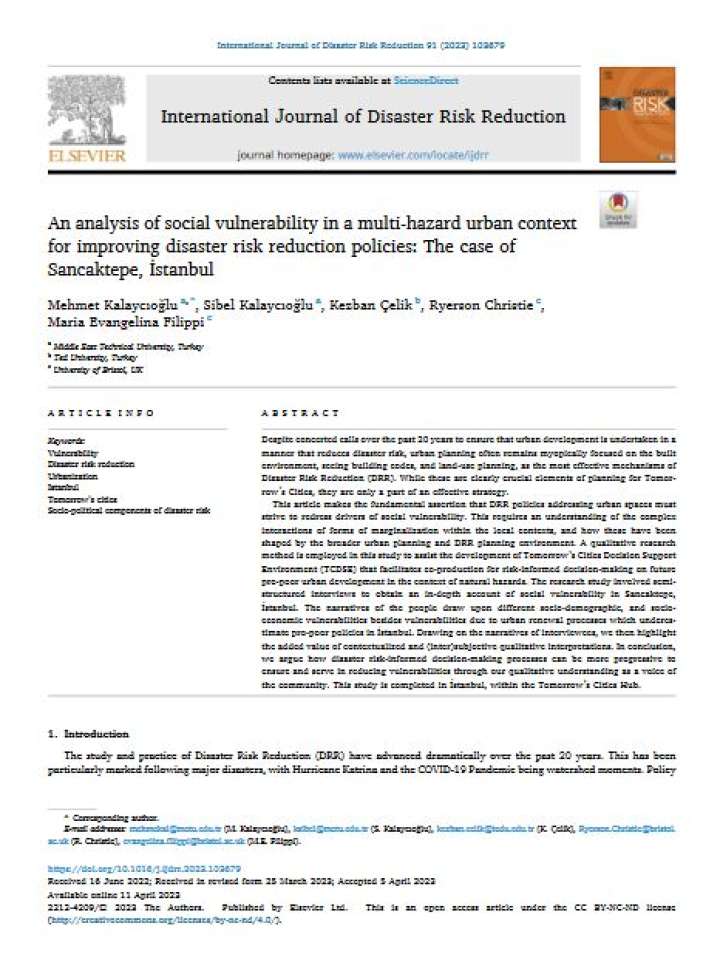An analysis of social vulnerability in a multi-hazard urban context for improving disaster risk reduction policies: The case of Sancaktepe, İstanbul
This article makes the fundamental assertion that disaster risk reduction (DRR) policies addressing urban spaces must strive to redress drivers of social vulnerability. This requires an understanding of the complex interactions of forms of marginalization within the local contexts, and how these have been shaped by the broader urban planning and DRR planning environment. A qualitative research method is employed in this study to assist the development of Tomorrow's Cities Decision Support Environment (TCDSE) that facilitates co-production for risk-informed decision-making on future pro-poor urban development in the context of natural hazards.
The research study involved semi-structured interviews to obtain an in-depth account of social vulnerability in Sancaktepe, İstanbul. The narratives of the people draw upon different socio-demographic, and socio-economic vulnerabilities besides vulnerabilities due to urban renewal processes which underestimate pro-poor policies in İstanbul. Drawing on the narratives of interviewees, we then highlight the added value of contextualized and (inter)subjective qualitative interpretations. In conclusion, we argue how disaster risk-informed decision-making processes can be more progressive to ensure and serve in reducing vulnerabilities through our qualitative understanding as a voice of the community. This study is completed in İstanbul, within the Tomorrow's Cities Hub.
Explore further
